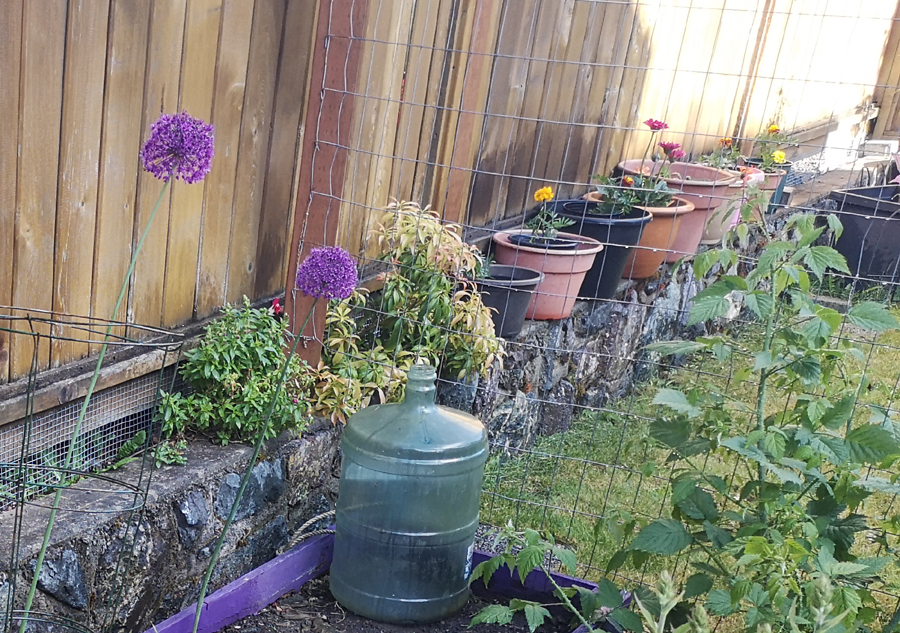Friday May 29, 2020 ~ BC
by Mary Brooke ~ West Shore Voice News
May 29 is the Day of the Honey Bee, in recognition of the significant role that honey bees and native pollinators play in B.C.’s agricultural industry and the lives of British Columbians, it was announced today by the BC Agriculture Ministry.
“Honey bees and native pollinators may be small in size, but their everyday role in the lives of British Columbians is big and can be seen throughout the province,” said Lana Popham, Minister of Agriculture.

“Whether they’re pollinating crops for our agricultural sector or providing B.C. honey, bees are important to each and every one of us. Through programs like Bee BC, we are ensuring the health of honey bees for future generations,” said Popham.
Funding for 15 new bee projects:
Minister Popham also announced funding for 15 new bee projects throughout BC, including two educational projects — one to help beekeepers adapt their operations during COVID-19 and another about how a glass observation bee hive can be used to teach students about he honey bee lifecycle and ecosystem.
The total funding release for those 15 projects is $70,725, says the Ministry of Agriculture. Each recipient is awarded up to $5,000. The funding is available each year; any group or company that has received funding in the past would be required to re-apply for further support.
Investment Agriculture Foundation of BC:
The Bee BC program provides funding to regional and community-based projects that support the health of B.C.’s bees. The fund provides support to research, explore, field test and share information about best management practices associated with bee health.
The Bee BC program is administered by the Investment Agriculture Foundation of BC on behalf of the Ministry of Agriculture.
Bees are a big part of the economy:
Honey bees are crop pollinators and honey producers which play a critical role in B.C.’s sustainable food system, contributing an estimated $538 million to the provincial economy.
Across Canada, honey bees and native pollinators have an economic contribution estimated at over $3.2 billion.
Regional and community-based projects:
- Alan Wong (beekeeper): to test brood breaks in hives in an urban setting and the effectiveness of Nosevit, a honey bee food supplement, and test the need for pollen patties versus naturally sourced pollen in urban environments.
- BC Honey Producers Association: to convert a planned two-day educational event to an online education meeting (due to COVID-19), to distribute education material to increase beekeeper capacity to manage colonies, allow better colony survival, better crop pollination, and more successful practices of beekeeping business.
- BC Honey Producers Association: to enable network of electronic monitoring of hives in southern, northern and southeastern B.C.
- Bee Awareness Society: to provide an educational program that teaches students the lifecycle of the honey bee, the importance of pollination and the importance of bees and other pollinators to the ecosystem using a glass observation bee hive as a learning tool.
- Blueberry Commons Farm Cooperative: to prepare one-hectare (2.5 acre) area with diverse forage crops for pollinators, and hold tours to engage with schools and community groups to promote the importance of increasing forage for honey bees and pollinators. The funding will also help support a mentoring program for beekeeping in their community.
- Cariboo Apiaries: to test overwintering nucleus colonies inside of reefer sea cans, to prevent starvation and increase survival.
- Chilliwack Beekeepers Community: to host community education open-hive days to teach good beekeeping management related to varroa mite control and treatment and demonstrate the use of oxalic acid vapour to treat mites.
- Evan Machin (beekeeper): to compare the overwintering survival rate between a Langstroth hive and a natural-style hive and build a hive that closely resembles a natural hive in the wild.
- Hay Meadow Honey: to conduct research to better understand what factors predict when fireweed will produce nectar.
- Hives for Humanity: to convert an urban area into a forage site for managed and native bees, and offer workshops that relate with seasonal activities on the site such as disease and pest management, native bee identification, and seed collection and propagation.
- Janet Simpson, Lyall Acheson and Victoria Acheson (beekeepers): to monitor varroa, an external parasitic mite that attacks and feeds on the honey bees, and explore optimized colony health through development of an insulated long-hive design.
- Rushing River Apiaries: to host local elementary school classes for apiary visits to educate on honey bee lifecycle, hive organization, mechanics of pollination and hive products.
- Sun Hill Apiaries and Neskonlith Education Centre: to perform a scientific study on different methods of enhancing bee health and provide education and mentorship to novice beekeepers.
- Thetis Island Bee Keepers Co-operative: to recover land for mass forage planting, design custom forage crop blend and share education and reporting with other beekeepers and community partners.
- Worker Bee Honey Company: to test if probiotic supplements are effective against snot brood disease in bees involved in blueberry pollination.
Bees in your own garden:

Anyone with a bit of garden or patio space can be part of helping support bee activity in the local ecosystem.
Crocus, hyacinth, borage, calendula, and wild lilac provide enticing spring blooms in a bee garden. Bees feed on the pollen from bee balm, cosmos, echinacea (cornflower/daisy), snapdragons, foxglove, and hosta in the summer. For fall, zinnias, sedum, asters, witch hazel and goldenrod are late bloomers that will tempt foragers.
One of the grants announced today has been issued to Vancouver-based Hives for Humanity to explore how to convert an urban area into a forage site for managed and native bees, with workshops that relate with seasonal activities on the site such as disease and pest management, native bee identification, and seed collection and propagation.
===== Links:
Bee BC: https://iafbc.ca/bee-bc/
Ministry of Agriculture’s apiary program: https://www2.gov.bc.ca/gov/content/industry/agriculture-seafood/animals-and-crops/animal-production/bees



